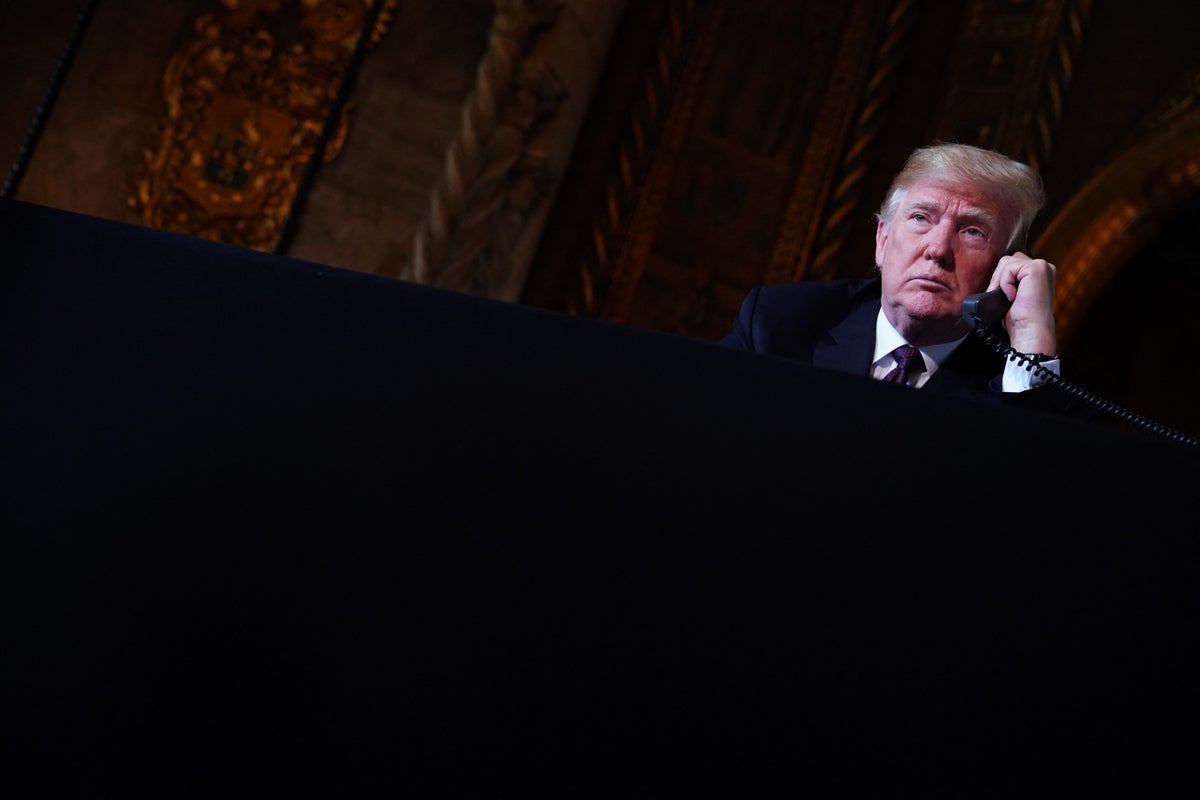
Donald Trump could be legally disqualified from holding office again if he is convicted of unlawfully taking or destroying government records from the White House, a Democrat elections lawyer has noted following the FBI’s raid of his property.
The former president on Monday said his Mar-a-Lago home is “under siege” and raided by a large group of FBI agents who “broke into my safe”.
“Nothing like this has ever happened to a president of the United States before. After working and cooperating with the relevant Government agencies, this unannounced raid on my home was not necessary or appropriate,” he said in a statement.
Marc Elias, a leading Democratic elections lawyer who served as general counsel for Hilary Clinton’s campaign, noted in a tweet that the FBI raid would potentially turn out to be a “blockbuster in American politics”.
He referred to Section 2071 of Title 18 of the United States Code which makes it illegal if someone with custody of confidential government records “willfully and unlawfully conceals, removes, mutilates, obliterates, falsifies or destroys” them.
The code states the person shall “be fined under this title or imprisoned not more than three years, or both; and shall forfeit his office and be disqualified from holding any office under the United States”.
In another tweet, he acknowledged that convicting Mr Trump under Section 2071 might not ultimately disqualify him from seeking the presidency again, but the idea that he would have to litigate it during the campaign is important.
“Yes, I recognize the legal challenge that application of this law to a president would garner (since qualifications are set in Constitution),” he said. “But the idea that a candidate would have to litigate this during a campaign is in my view a ‘blockbuster in American politics’.”
The dramatic escalation of law enforcement scrutiny over Mr Trump comes as he is gearing up for a possible run for the 2024 presidential elections.
Convictions under the section were earlier hotly discussed by legal experts and lawmakers during Hilary Clinton’s 2016 Democratic presidential nomination over allegations that she erased material from a private email server she used during her tenure as secretary of state.
But several legal scholars underscored that the Supreme Court ruling suggests Congress cannot change the eligibility criteria for who can be president. They noted that the Constitution allows Congress to disqualify people from holding office if impeachment proceedings are being carried out but they cannot be barred from holding office for criminal law.
Former federal prosecutor Harry Litman also put his weight behind Mr Elias and said he made a “huge point”.
“The records provision they’re investigating carries the penalty that someone convicted ‘shall forfeit his office and be disqualified from holding any office under the United States.’ So this could be the whole enchilada in terms of DOJ resolution,” he said.
The speculation has come after images obtained for an upcoming book on the Trump presidency appear to show shredded documents floating in toilets, a possible evidence into claims that Mr Trump tried to destroy presidential paperwork by flushing it away.
The photos, shared by New York Times journalist Maggie Haberman and published by Axios, showed torn fragments of handwritten documents floating in two separate toilets, one in the White House and the other in an unspecified location visited by Mr Trump on an overseas trip.
A source close to Mr Trump told The Independent that he was not present at his Florida residence at the time of the raid.
Eric Trump, the second-oldest son of the former president, told Fox News that the search warrant at the Mar-a-Lago estate was in relation to an investigation into the handling of National Archives records.
The agency in February asked the Justice Department to investigate Mr Trump after they retrieved 15 boxes from Mar-a-Lago. Officials said the president violated laws by ripping up many documents and several others were taped back together.







